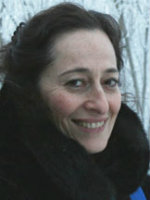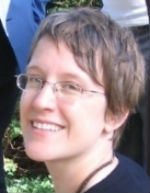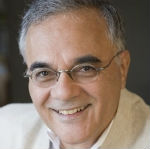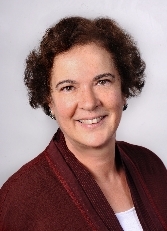
Aldo Civico is a leading peace-building strategist and a conflict resolution expert. He is the founder and the director of the International Institute for Peace at Rutgers University, Newark. An anthropologist, he is currently assistant professor in the Department of Sociology and Anthropology at Rutgers University. In Italy he is the author of La Scelta (Piemme, 1993), the intellectual biography of Ennio Pintacuda, the m [ ... ]

Since January 2002, I have been a faculty member at Teachers College, Columbia University, and am currently on faculty in Programs in Anthropology and Education and Applied Anthropology. I am also affiliated with the Universidad Iberoamericana in Santo Domingo, the Dominican Republic, and with Mwenge University College of Education in the Kilimanjaro region of Tanzania. My research examines a number of key issues in the [ ... ]

Elsa Stamatopoulou joined Columbia in 2011. Her arrival marked the completion of distinguished service at the United Nations (Vienna, Geneva and New York) with some 22 years dedicated to human rights. Indigenous issues were part of her portfolio since 1983 and she became the first Chief of the Secretariat of the United Nations Permanent Forum on Indigenous Issues in 2003. Last year she taught the first ever course a [ ... ]

My main theoretical interests lie in semiotic archaeology, and archaeologies of death and the body. I work in historical archaeology and the archaeology of the contemporary past, focusing particularly on nodes of controversy where conflicting sets of beliefs and practices converge. In particular, I am interested in the ways in which negotiations and conflict between actors are mediated through material conditions. To full [ ... ]

I began fieldwork in 1969. I have returned every year. My writing has spanned different things in roughly the following order; two books in Spanish for local people on the history of slavery and its aftermath, and books and articles in academic journals on the: 1) commercialization of peasant agriculture, 2) slavery, 3) hunger, 4) the popular manifestations of the working of commodity fetishism, 5) the impact of col [ ... ]

Mahmood Mamdani is the Herbert Lehman Professor of Government. He received his Ph.D. from Harvard University in 1974 and specializes in the study of African history and politics. His works explore the intersection between politics and culture, a comparative study of colonialism since 1452, the history of civil war and genocide in Africa, the Cold War and the War on Terror, and the history and theory of human rights. Prior [ ... ]

My work, strongly ethnographic and mostly based in Egypt, has focused on three broad issues: the relationship between cultural forms and power; the politics of knowledge and representation; and the dynamics of gender and the question of women’s rights in the Middle East . My first book, Veiled Sentiments, was about the politics of sentiment and cultural expression in a Bedouin community in Egypt that made an argumen [ ... ]